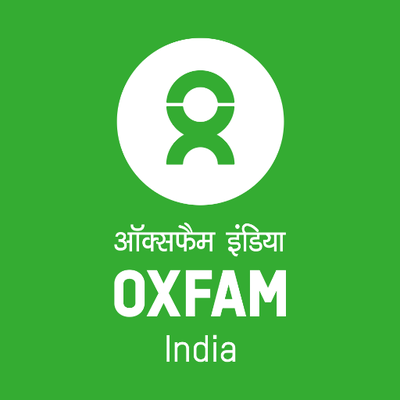Oxfam India’s panel discussion on global inequality report 2021
| Date :29-Jan-2021 |

Oxfam India conducted a panel discussion on the global inequality report 2021 titled ‘The Inequality virus’ which was released on the opening of Davos World Economic Forum on January 25, 2021 in Raipur.
The Covid-19 pandemic posed a serious threat to public health last year; however, the inequality arises due to pandemic. India is no exception. Where responding to pandemic, early and strict lockdown imposed on public, which contributed to push lakhs of workers and rural mass into poverty.
On the other side, wealth of Indian billionaires increased by 35% during the pandemic. While country’s GDP dipped down during the lockdown between March and December 2020, wealth of the top billionaires increased by nearly
Rs 13 lakh crore.
Though, the virus doesn’t discriminate while infect, but the inequality does! Welcoming the participants Anand Shukla, Oxfam India said that the annual inequality report is a part of Oxfam’s effort on reducing inequality. This report tries to analyse the inequality at the global level in different countries. Addressing the gathering, public health rights expert Dr Yogesh Jain said that the pandemic had reminded us to build a robust public health service system. The rich in our society fight against virus with physical and social distancing, but the poor bore the brunt by losing their livelihood.
Pradip Sharma, Advisor to Hon’ble Chief Minister (Govt of Chhattisgarh) said that such effort by Oxfam is laudable. The discussion over inequality report in Chhattisgarh is a welcoming step.
Dwelling in details about the report, Amitabh Behar, CEO of Oxfam India, in his message, said the report shows how the rigged economic system is enabling a super-rich elite to amass wealth in the middle of the worst recession and the biggest economic crisis in the history of independent India, while billions of people are struggling to make ends meet.
It reveals how the pandemic is deepening long-standing economic, caste, ethnic, and gender divides. If India’s top 11 billionaires are taxed at just 1% on the increase in their wealth during the pandemic, it will be enough to increase the allocation of Jan Aushadi Scheme by 140 times, which provides affordable medicines to the poor and marginalised. Dr Priyanka Shukla, joint Secretary in Health and Family Welfare department, Govt of Chhattisgarh said that Covid-19 has badly affected the access to public health, especially of poor and marginalised section.
Presenting the recommendations from the report Prakash Gardia, Oxfam India said that the report requests, “The fight against inequality must be at the heart of economic rescue and recovery efforts”. We should all work together to make a world which has equity, equality and climate justice as its fundamental values. Vidya Rajput from Mitwa group, Dr Thomas from SHORE, Mamta from Domestic Workers Union, Pushpalata, a community health activist and Vinayshil, a youth activist shared their view. Head of the organisations from HelpAge, Unicef, Anmol Foundation and GramMitra participated in the discussion with intellectuals, youths, safaikarmis and representatives from media house.